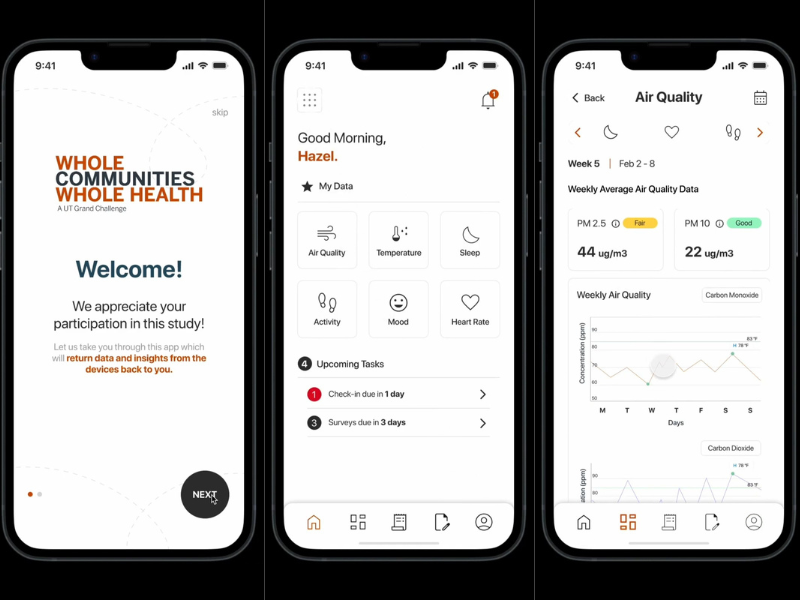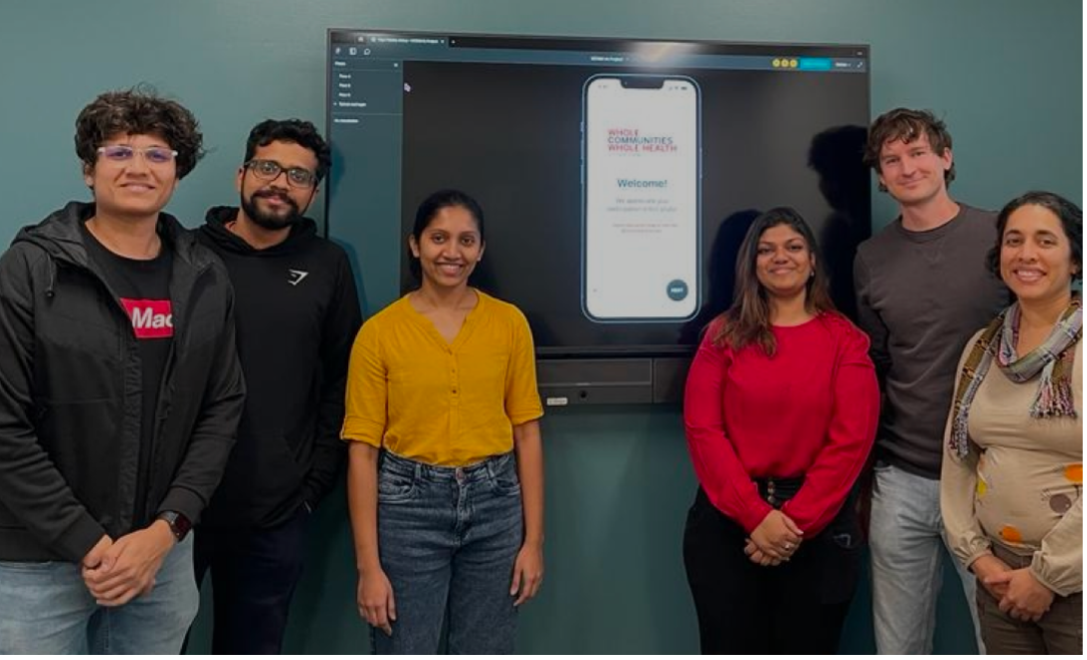
When faculty and Research Development staff at The University of Texas at Austin came together five years ago to launch Whole Communities–Whole Health, they made an unusual but straightforward commitment: the data they gathered from a long-term study about social determinants of health would be shared directly with the study participants.
This isn’t new. Depending on the research in question, data are sometimes shared out of necessity to ensure their validity. And there have been other studies where data were simultaneously shared with participants that might benefit from them, while also informing the central thesis of a funded research study.
Still, it isn’t standard practice to operate this way, meaning some research findings that could help solve problems on the ground were the results made more easily available remain hidden in an academic journal somewhere, failing to provide evidence-based conclusions to those who need them most.
“Typically, participants in research studies do not directly benefit from the information gathered throughout the research process. We hope to return data in meaningful ways to the participants in our study and learn more about how that feedback influences their behaviors and beliefs.”
Whole Communities–Whole Health (WCWH) is a grand challenge research program taking an interdisciplinary approach to how healthcare data are collected while also engaging communities and participants in the research process. From the outset, WCWH decided that returning data to the participants wasn’t only ethical but could also provide useful information that families can use to make informed decisions about their health.
Currently, nearly 100 families living in Del Valle and surrounding areas of eastern Travis County are participating in this longitudinal cohort study.
“Typically, participants in research studies do not directly benefit from the information gathered throughout the research process,” said Sarah Kate Bearman, a member of the WCWH Theme Organizing Committee and associate professor of educational psychology in the College of Education. “We hope to return data in meaningful ways to the participants in our study and learn more about how that feedback influences their behaviors and beliefs.”
Making a commitment to share data is one thing; figuring out how to do it efficiently and effectively—while protecting the privacy of participants—was another.
Yan Zhang, an associate professor in the School of Information, specializes in how people consume and comprehend health information and was immediately interested in the project. She offered to task a team of her graduate students in her information architecture class to develop a solution, knowing it would give them real-world, professional experience. She said her students jumped at the chance to use their expertise to help an Austin community.
Hornsense, an app created by WCWH with help from faculty in the Chandra Family Department of Electrical and Computer Engineering at UT Austin’s Cockrell School of Engineering, was already being used to collect data and provide surveys to participants. Zhang’s students were given 14 weeks to design a prototype that would expand the existing app’s functions.
After taking a deep dive into the mission of WCWH, the students conducted an analysis of 10 existing apps that collect health data. Then, based on extensive research and interviews with the WCWH team, they developed a user persona to help guide the creation and design of an accessible, interactive dashboard that offered easy and intuitive navigation.

From left: grad students Shatayu Mondhe, Madhav Varma, Ananya Gubbi Mohanbabu, and Aayushi Saha; WCWH Research Assistant Professor Benjamin Baird; WCWH Community Engagement Specialist Shirene Garcia. Photo credit: UT Austin.
The students’ biggest challenge was not being able to speak directly to participants—the end users—because of human-subject research restrictions.
“It required innovative approaches and in-depth knowledge of user-centric design and data visualization concepts to get beyond these challenges," said Ananya Gubbi Mohanbabu, who is pursuing a master’s degree in information studies. "I gained a lot of knowledge on how to strike a balance between having a good user experience design and producing a feasible design.”
Zhang said she is proud of what her students produced, especially given their constraints. “Their final deliverable is wonderful,” she said. “I’m impressed with how creative they were with the challenge they were presented.”
Shirene Garcia, Community Engagement Specialist for WCWH, agreed. “The design was professional and effective, and they kept the end user in mind,” she said.
Garcia said WCWH is working to expand the functions of the Hornsense app, and plans to build out an iteration of the students’ prototype over the next year.

